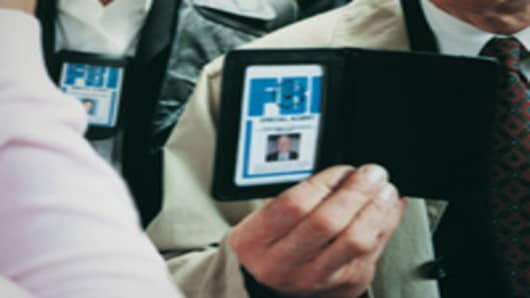CNBC reports:"The FBI has made an arrest in the so called 'Expert-Network' case. Don Chin Trang Chu was arrested Wednesday on conspiracy charges in connection with his employment at an "expert-networking" firm."
CNBC is also reporting that Chu planned to depart for Taiwan on November 28, 2010—where he would presumably be harder to reach for US law enforcement.
According to a Reuter's article, a complaint unsealed in federal court in Manhattan revealed the following: Chu, who worked for Primary Global Research based in California, allegedly "arranged for hedge funds to get tips on companies including Atheros Communications Inc, Broadcom Corp and Sierra Wireless Inc."
Business Insider dryly observes that Chu's corporate website "basically advertises that he's got insider information".
BI lists a few quotes from the website, among which statements about Chu are the following: That he has "'deep connections' and 'relationships' in the technology industry." And that "He has vast experience and connections that allow Primary Global Research to gather high quality data on the Asian market."
The statements, one suspects, could be construed in two different lights: As an advertisement of insider information for sale to the highest bidder —or as standard issue marketing hyperbole, simply intended to burnish the credentials of an unknown analyst.
But perhaps the most interesting question raised by the arrest is one of timing.
It seems highly unlikely that Mr. Chu will be the only target of a criminal arrest. Furthermore, it also seems reasonable to believe that the timetable of his arrest was driven, at least in part, by his November 28th departure for points overseas.
As we know from Monday's simultaneous FBI raid on three separate hedge funds, as well as similar simultaneous raids in the past, there is a law enforcement preference for conducting simultaneous sweeps. Cynics might suggest that it's all about grandstanding for the media — but simultaneous raids allow the government to grab multiple defendants involved in a conspiracy before they can be tipped off by the arrests of their co-conspirators.
So what does the Chu arrest tell us about what's to come?
Perhaps it just reinforces what we already know that "expert-networking" firms—and the financial institutions who deal with them—are firmly in the crosshairs of the government's latest investigation. Whether the telecom sector, or the Asia-Pacific market, is going to be a specific focus of government investigation remains unclear at this time.
But if the government had its hand forced on the timing of Chu's arrest by his imminent departure to Taiwan, you might begin to wonder about the reaction of his compatriots, who may have been involved with him in similar activities. They might well be shredding documents, or meeting up in late night diners to synchronize their stories. Presumably after greeting each other with a friendly hug—intended to search for a wire.
______________________________________________________
Questions? Comments? Email us atNetNet@cnbc.com
Follow NetNet on Twitter @ twitter.com/CNBCnetnet
Facebook us @ www.facebook.com/NetNetCNBC


